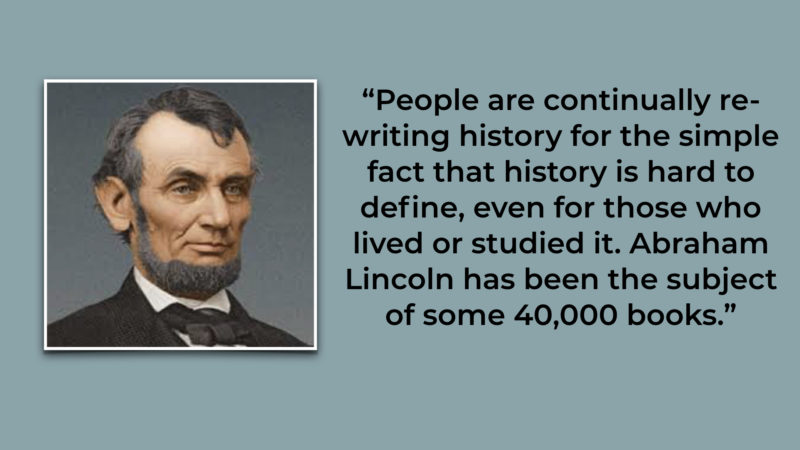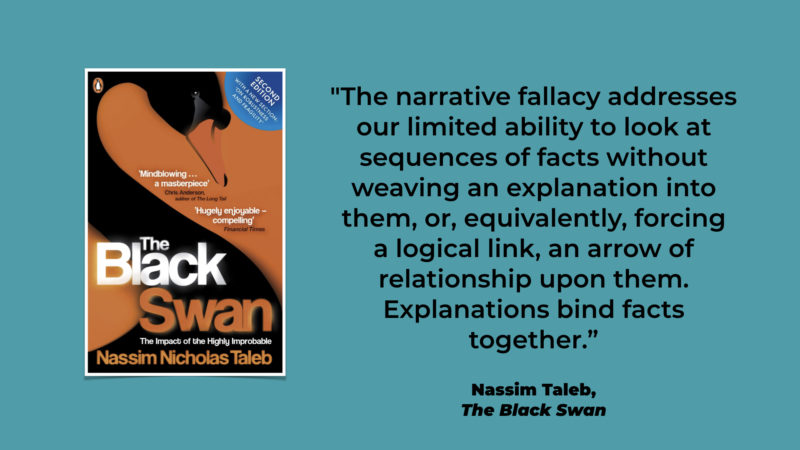
By BEN CARLSON
The 1960s was a tumultuous decade.
There was the Vietnam War, riots, anti-war demonstrations, the assassinations of Martin Luther King Jr, John F. Kennedy, and Robert Kennedy, the Cuban Missile Crisis, the civil rights movement, and much more.
The country finally put aside all of the political and racial tensions by the end of the decade once we beat the Russians and the astronauts from Apollo 11 landed on the moon in the July of 1969.
At least that’s what I’ve been told in much of what I’ve read or seen in pop culture over the years. Obviously, I wasn’t even around in the 1960s so I have no idea what impact the mission to the moon had on the mood of the country.
But maybe the moon landing wasn’t the unifying event we read about in all of the history books and Wikipedia entries. Maybe that’s just a wonderful narrative that stuck because it makes for such a great story.
In his excellent book on the moon landing, One Giant Leap, Charles Fishman paints a different picture of the mood surrounding the space program in the 1960s.
In 1964, when a group of Americans was asked if we should, “go all out to beat the Russians in a manned flight to the moon,” only 26% said yes.
Even after the Apollo 8 mission in late-19681 meant U.S. astronauts were the first ever to circle the moon, Americans were still not on board with using so many resources to land on the moon.
Four weeks after millions of Americans watched a Christmas Eve message from those Apollo 8 astronauts in space, just 39% of people in a Harris Poll thought it was a good idea to land on the moon. And 55% of those surveyed said the $4 billion being spent annually by NASA wasn’t worth it.
Many questioned why the government would spend so much on space exploration when there were still so many unsolved problems on earth.
To be fair, people lie on surveys. And the moon landing remains the most-watched television event in history, with almost 95% of households tuning in for that monumental event.
I’m sure there were some people who received a reprieve from the chaos of that decade by getting caught up in the space race but many others probably weren’t impacted because personal circumstances overwhelmed any shot in the arm from beating the Russians to the moon.
History is being constantly rewritten
The point here is that history doesn’t always perfectly line up with what we read. And much of history is being rewritten on a regular basis as stories, context, perspective and research methods change over time.
People are continually re-writing history for the simple fact that history is hard to define, even for those who lived or studied it.
Abraham Lincoln has been the subject of some 40,000 books.
The Battle of the Bulge took place around 75 years ago. From 2014-2016 there were at least 8 books written on this one WWII battle.
World War I took place more than 100 years ago. There were a half-dozen books, each hundreds and hundreds of pages, published in 2014 alone about why the Great War broke out in the first place.
Historians have given more than 200 hundred theories about what caused the fall of the Roman Empire.
The 17th century Dutch Tulip mania is held up by some as one of the biggest bubbles in history. Others downplay what happened and think the entire event was overblown.
The SEC wrote an 840-page report to explain the 1987 Black Monday crash. Investors still argue about what actually caused the biggest one-day loss in stock market history.
Google gave me 374 million hits on ‘The Great Depression’ and experts still can’t fully explain why it transpired the way it did.
There have already been a number of faulty explanations about the cause of the Great Financial Crisis of 2007-2009. There will be many more terrible takes in the future the further away we get from that period.

Narratives are constantly changing
History is hard to pin down perfectly because narratives change more than statistics or facts over time. This is bound to be the case when we’re dealing with competing opinions, stories, and viewpoints.
Just a week after 9/11, William Hirst and a group of researchers asked more than 3,200 people to write down where they were when they first heard about the 9/11 attacks and some facts about the attacks themselves.2 The researchers then performed follow-up surveys 11, 25, and 119 months after the attacks to get a better sense about how our memories can change over time.
The idea behind the study is that 9/11 is the kind of flashbulb moment that would be seared into people’s brains for eternity.
But that wasn’t the case.
They found after just a year there were glaring inconsistencies in the stories people were telling themselves about their own memories. And after 10 years, many of the participants couldn’t believe what they initially wrote in the days after 9/11 because their memories didn’t match up with what they said at the time.
Our memories are impacted by external influences that can change the way we perceive what really happened. Now extrapolate this over billions of people around the globe and you can see why we can’t always trust the commonly held interpretations of history. It can grow into a massive game of telephone.
The narrative fallacy
The narrative fallacy is the idea that we’re constantly in search of an explanation for everything. The world is an uncertain place but if we can just form a simple explanation for everything, it gives us a sense of comfort.
Nassim Taleb introduced the idea of the narrative fallacy in The Black Swan:
“The narrative fallacy addresses our limited ability to look at sequences of facts without weaving an explanation into them, or, equivalently, forcing a logical link, an arrow of relationship upon them. Explanations bind facts together. They make them all the more easily remembered; they help them make more sense. Where this propensity can go wrong is when it increases our impression of understanding.”
Everything we think we understand throughout history is probably at least a little wrong. One of the reasons there are holes in what we know about history is because it’s impossible to ever truly understand everyone’s motives.
Alex Rosenberg wrote an excellent book on this idea called How History Gets Things Wrong:
“What narrative history gets wrong are its explanations of what happened. And the same goes for biography—the history of one person over a lifetime. Biographers can get all the facts from birth to death right. What they inevitably get wrong is why their subjects did what they accurately report them as having done.“
Walter Isaacson wrote a 656-page biography about Steve Jobs that was published in 2011. Not long after that came more biographies and movies about Jobs that disputed some of the ways Isaacson characterised the Apple co-founder.
If each individual has a hard time with their own memories of what happened, how accurate can other people’s assessments of their life truly be?

I’m not suggesting everything we know about history is bunk. I’m not that cynical. But it is important to understand the history we think we know is far from perfect. When trying to use the past to explain the present or future it’s important to remember:
The world is more random than you think. The world is a complex adaptive system. Not everything has a clear explanation. So cause and effect can be hard to nail down in most instances. This isn’t true of everything but it’s a good baseline.
Diversify your sources. Understanding history is important but so is understanding the source of who is giving you that history lesson. Since the narratives are always changing, it can help to read different viewpoints and refrain from simply believing the first intelligent-sounding account you read about a particular event, person, or period of time.
Revisionist history will only ramp up in the future. There are more hot takes produced each day than the sum of hot takes in all of recorded history up to this point.
OK, I made that up but the fact that there are so many opinions and avenues to share those opinions these days means it will only make it harder on future historians to decipher what actually happened or how people felt about certain things.
People on the Internet can’t agree on what happened 3 hours ago. History books could turn into a choose your own adventure depending on the sources the author chooses to trust or the narrative they choose to use.
There’s nothing wrong with stories. You just have to understand their power over us. Rosenberg wrote, “Science is not stories; it’s theories, laws, models, findings, observations, experiments. Yet almost the only way writers communicate science to the general public is through the narrative history of breakthroughs or the biographies of the scientists who achieved them.”
I suppose it would be nice if everyone used facts, logic, statistics, and probabilities to make decisions but the truth is we mostly use stories, emotions, and our ingrained human nature. A good story will always trump a good statistic.
Those who can effectively tell stories will almost always have a leg up on the competition, no matter the domain.
Stop fighting the last war. History can still be a decent guide because it allows us to see that human nature is the one constant over time. Problems arise when people are continuously fighting the last war by using the past as a blueprint for what will happen next. The future is impossible to model but so is much of the past.
It’s OK to admit you don’t understand certain things. The fact that nothing is carved in stone can be a good thing. Sometimes our re-writing of history means we’re growing as a species. But it’s also a sign of intelligence to admit when you don’t understand something.
“I don’t know why that happened” is the right conclusion sometimes.
When the Germans declared war in 1914 to set off World War I, a former chancellor of Germany asked the new chancellor why it happened. His reply was, “Ah, if only one knew.”
1The book Rocket Men by Robert Kurson on the Apollo 8 mission is awesome as well. I loved both of these books and can’t get enough of how insane it is that we went from zero to 60 in less than a decade to achieve so much on the space race.
2Malcolm Gladwell covered this one on his podcast last year.
BEN CARLSON is Director of Institutional Asset Management at Ritholtz Wealth Management LLC. He also writes the financial blog, A Wealth of Common Sense.
If you’d like to hear more from Ben Carlson, here’s the interview we conducted with him:
Complex markets don’t require complex solutions — Ben Carlson










